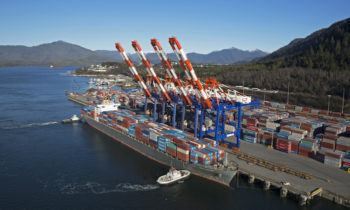
The US Congress has approved the 2017 Omnibus Appropriations Bill, which will maintain or increase funding for programs in an effort to aid America’s seaports deliver economic prosperity, the American Association of Port Authorities (AAPA) informed.
“The funding levels in this legislation will benefit US ports by ensuring the federal government continues to contribute its share of capital to seaport-related infrastructure, port security and voluntary diesel emissions reductions efforts,” Kurt J. Nagle, AAPA’s president and CEO, said.
“AAPA’s US-member ports are especially encouraged by the robust funding provided for the US Army Corps of Engineers’ Navigation Program, which is a critical partner in ensuring that America’s waterside infrastructure is prepared for growing volumes of both export and import trade,” Nagle added.
AAPA said that the specific funding levels within the bill that benefit US ports include USD 6.038 billion for the Army Corps of Engineers, including USD 2.66 billion for navigation projects and studies, USD 1.301 billion for Harbor Maintenance Trust Fund work and USD 28 million for the Donor and Energy Transfer Ports Program.
Additionally, USD 500 million would go for the US Department of Transportation’s TIGER program, USD 100 million for the Department of Homeland Security’s Port Security Grant Program and USD 60 million for the Environmental Protection Agency’s Diesel Emissions Reduction Act (DERA) program, among others.
“Seaport cargo activity accounts for 26 percent of the US economy,” Nagle said, adding that the 2017 Omnibus Appropriations Bill “will better enable seaports to meet a growing demand for the safe, efficient movement of freight.”